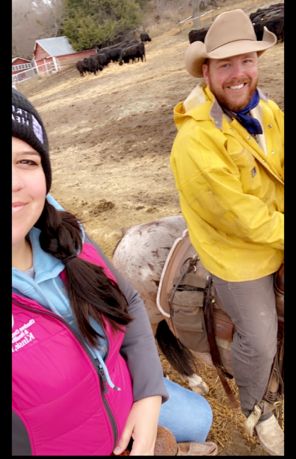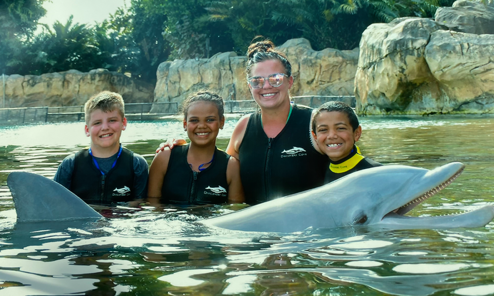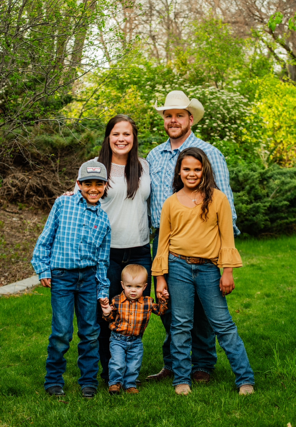“Her commitment to patient advocacy is so impressive” – that’s what we’re told about Kinsie Kruger. She talked to us about her adventures in nursing and ranching, including her dramatic impetus for becoming a nurse.
Hi Kinsie! How long have you been a nurse?
I graduated with my LPN in 2019, and my RN in 2020, so 6 years all together.
Why did you choose nursing? What about the field appealed to you?
Well, funny story, I was working for my best friend’s mom, who was the director for the local Home Health and Hospice. I was the office manager, did a lot of billing and paperwork. One day, my boss went into anaphylactic shock, and I remember being so nervous to administer her epi-pen and rush her upstairs to the ER – never thought I would ever actually have to do it, even though I had known about her allergy for a long time.
Ever since then, I was like, I can do this, I can become a nurse. I will always thank my Home Health and Hospice nurses for pushing me to become the person I am today, especially Jane and Diana.

Wow, what a story! Did you ever want to do anything else?
Coming from a family of educators, spending countless hours helping my mom prepare for another school year at a rural country school, I knew that was something I didn’t want to do. Right out of high school, I studied mathematics. I had always had my heart set on being an actuary, until nursing found me.
How did you connect with Tribal Health?
I connected with Tribal Health through one of our fearless leaders, Sarah Jacobs. Sarah and I had worked together at a critical access hospital in the panhandle of Nebraska.
I wanted a change – something more. She talked me into coming to Pine Ridge, and I’ve never looked back.
Was it your first time caring for patients on Indigenous lands?
Yes, working in Pine Ridge was the first time caring for patients in Indigenous lands. As part of my heritage, the Indigenous people have always had a special place in my heart. My Grandmother was born and raised in Rosebud, SD as a member of the Rosebud Sioux Tribe. Growing up off of the reservation, I never really knew our ancestors’ traditions, so it has been amazing to see the culture and art that made us who we are on the Indigenous lands.
What’s your favorite part of the job?
That’s a tough question, as I love a lot of things about this job, specifically working in Pine Ridge. First of all, my coworkers. There is a close bond between us at Pine Ridge, especially on the night shift. We look out for each other, take care of each other and it’s truly a blessing.
Secondly, I love the fact that we work side by side with our providers. I had only ever worked in small, critical access hospitals, so having to call and wait 30 minutes for a provider to come in was difficult at times, especially when you never know what’s going to come through those doors. And last of all, our patients. Everyone has a story, an experience and they like to be heard. I like getting to know our patients and hearing what they have to say, each one of them is unique in their own way.

What are your plans for the future?
Well, our future is going to have a new twist come December, we are welcoming our fifth child. But as far as nursing goes, I want to keep gaining knowledge and experience, and maybe tackle some more schooling. Right now, I love what I am doing in the Emergency Department.
What do you like to do when you’re not at work?
When I’m not being a nurse at work, I get to be the nurse at home, between my husband, the kids and the cattle. We run cattle in the Sandhills of Nebraska. You know what they say, ranchers don’t like to leave home. But that doesn’t stop the kids and I from going on adventures and making memories. I love to travel and all things outdoors.
How fun! Do you have any advice for nurses new to providing care on Tribal nations?
My only advice is to keep an open mind, and try to see things from the patient’s point of view. Sometimes things get a little more challenging, our patients aren’t always able to jump in the car to go see a specialist, and sometimes we have to fill those gaps and support them in more ways than normal for them to get the care they need.
Excellent advice – thanks, Kinsie!


